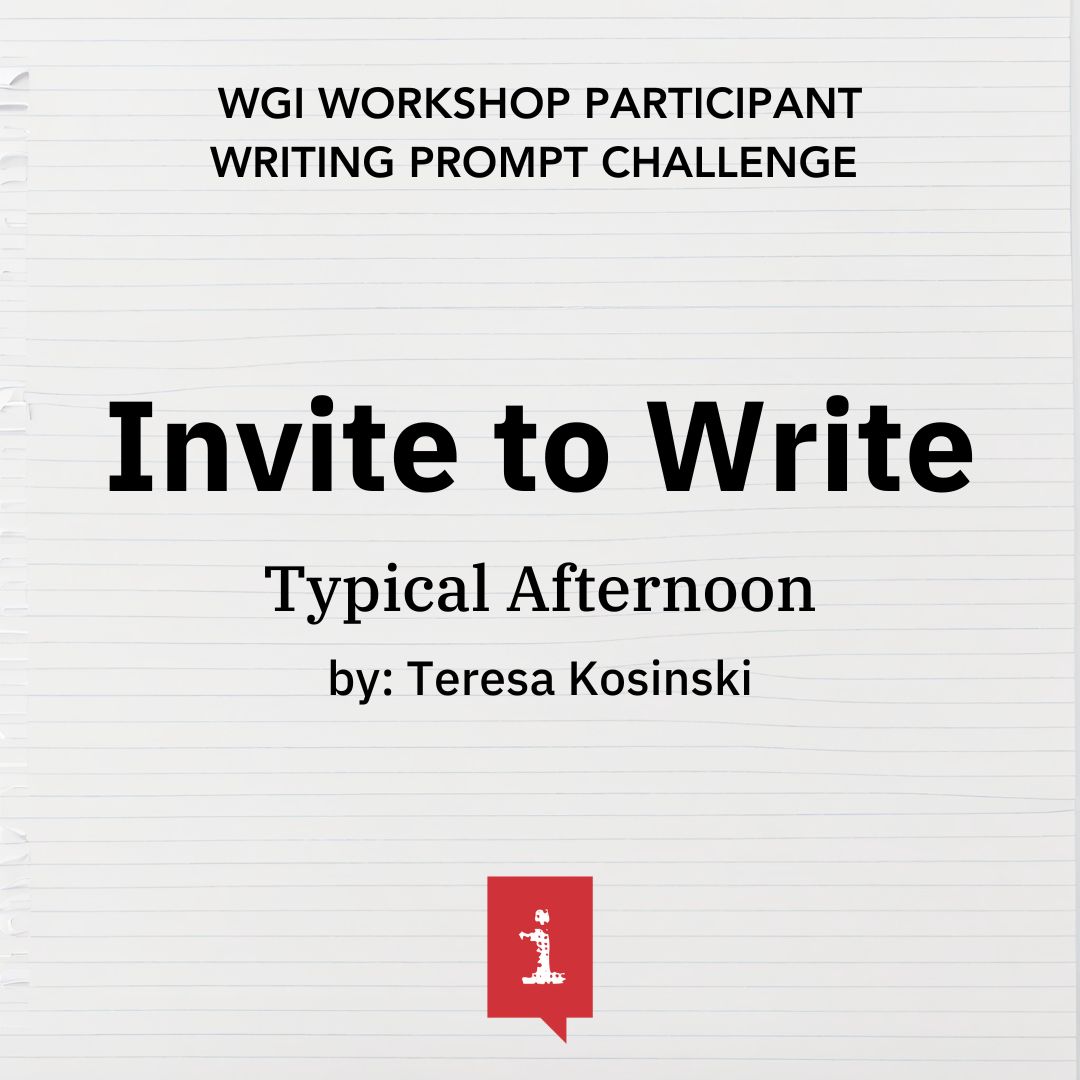Here is another piece from our Invite to Write Challenge! We asked our writers to craft a story, telling us about their fantasy world. Stay tuned to continue reading the amazing work. The one below is by Teresa Kosinski!
Typical Afternoon
Gemma looks at the clock in her home office. 3:45. Penelope should be home by now. A flash of worry runs through her stomach before she remembers that Penelope is having a Discovery session at school today. Conducted several times a year, the Discovery sessions are held by professional Psylunkers–those trained to gently probe the minds of their clients to unearth gifts and talents that might otherwise be overlooked.
Although Gemma expects no surprises, both she and Penelope look forward to finding out Pen’s strengths and how to nourish them. Gemma is grateful that Pen has grown up in a world that cares for and appreciates everyone. When Gemma was six, the United States narrowly avoided fascism. She didn’t realize what that meant at the time, but she remembers her family being very worried about the election of a “bad man.” Had the voters made the wrong choice, her dad would have likely been executed and the rest of her family sent to live in a gulag in the American desert. Her dad was a chemistry professor at a local university and the bad man said that American colleges were evil places and needed to be replaced with “good people.”
She shudders to shake that memory away for now.
Gemma heads outside to tend to her garden while she waits for Pen to arrive home. The sweet scent of her Gravenstein apple tree greets her and she smiles.
“They’re looking good!” shouts Diana, her elderly neighbor.
Laughing, Gemma replies, “Diana! I didn’t see you there! They smell great, too…hey, would you like to come over for dinner?”
“I would just love that, especially if you give me six or seven of those apples–I can bring a pie.”
Gemma grinned. “Sounds like a deal. Pen should be home any minute. She really likes having you over. Me, too.”
Diana enthralled both Pen and Gemma with stories of her life growing up when things weren’t as easy or as hopeful. They worried about Diana when she was diagnosed with lung cancer. But Diana got the help she needed both in hospital and at home. Cancer of any sort was a rarity these days now that a series of vaccines prevented all types of cancer from growing. But those who were born before they became commonplace would sometimes develop a form of the disease. Thankfully, treatments and outcomes had greatly improved to the point where it was a mere annoyance.
Once healthcare—including mental health—began to be treated as a human right, Americans began to be less angry. Over time, this not only changed the United States, but all other countries who had not previously held that fundamental value. After a few decades of happier, healthier people, war had ceased to exist. Even spats between neighbors were resolved quickly. We were taught the skill of empathy from the time we were toddlers.
Diana and Gemma looked toward the bike path when they heard the chatter of Pen and her best friend Klyde. As she pedaled, Pen waved to her mom and Diana. Nearing home, Pen shouted to Klyde, “Bye, Klyde!”
“See you tomorrow, Pen!” yelled Klyde as he sped up towards his home.
“Mom! It was the best day! Can I tell you about it?! Diana, I want to tell you about it, too!” Pen squealed. “I really like my Psylunkers! Mom, Diana—did you like your Psylunkers? This is going to be the best year ever! Is Diana coming for dinner?”
Gemma and Diana chuckled. Gemma gives Pen a hug. “Diana is coming over for dinner and she’s bringing a pie. We both want to hear all about your day.”

